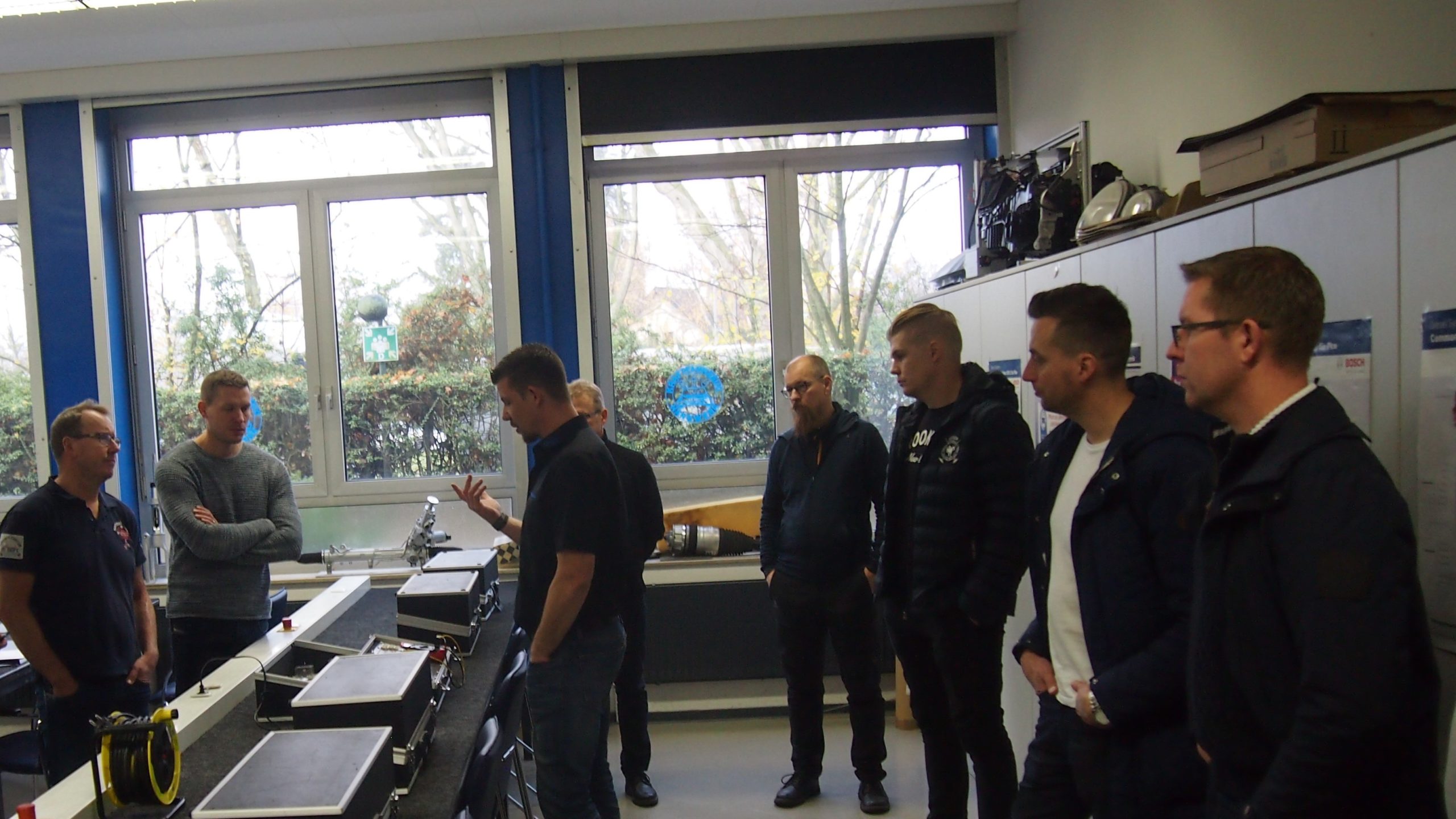Equipping education and training within the vehicle sector systems to online and distance learning platforms. This includes supporting teachers to develop digital competences and safeguarding the inclusive nature of learning opportunities. Currently, there is a major technological shift which the vehicle sector is experiencing, with a combination of electric powered and hybrid vehicles, where the need for expertise will be quickly affected by increased demand in these new technology areas. A relevant need analysis based on the difficulty for VET training in areas related to vehicles to keep up with effective training of teachers in a fast developing and highly technical branch. Specifically, practical procedure of the high-voltage on e-vehicles will be dealt with as this is a new area for many VET teachers in the vehicle area.
It is well argued for that shared digital content will facilitate for VET institutions to offer a relevant education, also on-line. The proposed solution to train trainers in developing digital video clips and make the material available for other VET-trainers is a concrete way of doing so. The activities are also supporting work-based learning. Digital deployment is envisaged as the flipped classroom method with recorded lectures and subsequent active learner-oriented workshops in the classroom/workshop will be taken place.
There is a clear take up which benefit the target group. For instance, the script for producing video clips which focuses on the practical procedure of the high-voltage on e-vehicles. An added value is that the digital learning unit will be produced as a video clip based on the practical contents in the current curriculum. Another example of this is the step-by-step procedure on how to disable FEV (Full Electric Vehicle) and HEV (Hybrid Electric Vehicle).
Partners
Amledo & Co, Patrick Ärlemalm, coordinator
Uppsala Yrkesgymnasium, Max Micheal, vehicle engineering teacher
Erikslundsgymnasiet, Pär Winter, vehicle engineering teacher
Center for Erhvervsrettede uddannelser Lolland-Falster, Claus Brandt Kristensen, didactics expert
Handwerkskammer für Ostthüringen, Andreas Jörk, Mobility coach
SBBS Technik Gera, Ingolf Zupfer, e-vehicle engineering teacher
With support of Erasmus+ 2020-1-SE01-KA226-VET-092422


Digital teaching and training practices in e-vehicle VET
Equipping education and training within the vehicle sector systems to online and distance learning platforms. This includes supporting teachers to develop digital competences and safeguarding the inclusive nature of learning opportunities. Currently, there is a major technological shift which the vehicle sector is experiencing, with a combination of electric powered and hybrid vehicles, where the need for expertise will be quickly affected by increased demand in these new technology areas. A relevant need analysis based on the difficulty for VET training in areas related to vehicles to keep up with effective training of teachers in a fast developing and highly technical branch. Specifically, practical procedure of the high-voltage on e-vehicles will be dealt with as this is a new area for many VET teachers in the vehicle area.
It is well argued for that shared digital content will facilitate for VET institutions to offer a relevant education, also on-line. The proposed solution to train trainers in developing digital video clips and make the material available for other VET-trainers is a concrete way of doing so. The activities are also supporting work-based learning. Digital deployment is envisaged as the flipped classroom method with recorded lectures and subsequent active learner-oriented workshops in the classroom/workshop will be taken place.
There is a clear take up which benefit the target group. For instance, the script for producing video clips which focuses on the practical procedure of the high-voltage on e-vehicles. An added value is that the digital learning unit will be produced as a video clip based on the practical contents in the current curriculum. Another example of this is the step-by-step procedure on how to disable FEV (Full Electric Vehicle) and HEV (Hybrid Electric Vehicle).
Partners
Amledo & Co, Patrick Ärlemalm, coordinator
Uppsala Yrkesgymnasium, Max Micheal, vehicle engineering teacher
Erikslundsgymnasiet, Pär Winter, vehicle engineering teacher
Center for Erhvervsrettede uddannelser Lolland-Falster, Claus Brandt Kristensen, didactics expert
Handwerkskammer für Ostthüringen, Andreas Jörk, Mobility coach
SBBS Technik Gera, Ingolf Zupfer, e-vehicle engineering teacher
With support of Erasmus+ 2020-1-SE01-KA226-VET-092422